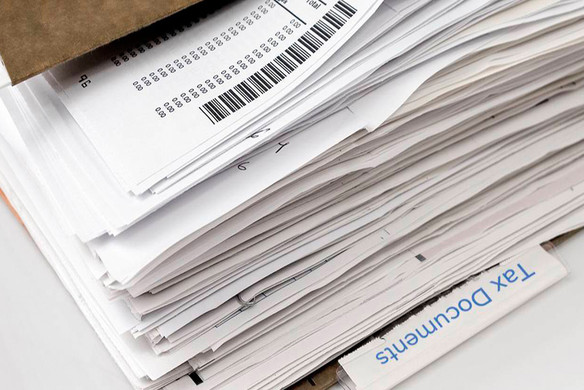Table of contents
We get it. Sales tax isn’t fun or exciting to think about. In fact, we’re willing to bet you consider it a huge pain. And one of the reasons sales tax is such a huge pain is because the rules and best practices can vary so much from state to state and business to business.
While it’s true that sales tax can get hairy, there are some general rules that will help you conquer this cumbersome administrative chore. (Remember, this post is for educational purposes only. For sales tax advice related to your business, be sure to consult with a professional.)
Here are the crucial things to know:
1. Sales tax is governed at the state level.
Forty-five states and Washington, D.C., have a sales tax. This means that each state creates its own sales tax laws and regulations, and they can vary widely from state to state. Be sure to check with your state to get a clear idea of its sales tax requirements.
2. You only need to collect sales tax from buyers in states where you have nexus.
Fortunately, you probably don’t need to learn sales tax rules in all 45 states (plus D.C.). You only need to collect sales tax in states where you have nexus. Nexus means a “significant connection” with the state, and common factors that establish nexus include:
- A location
- Personnel
- Inventory
- A drop shipping relationship
- An affiliate
- Making sales at a tradeshow or craft fair
You can find a list of what creates nexus in every state here or read this crash course on sales tax nexus for more information.
3. Some items aren’t taxable or are taxed at a different rate.
In New York, clothing that costs under $110 is tax exempt. In Arkansas, grocery items are taxable at a reduced rate of 1.5%. In many states, textbooks are not taxable but regular books are (though sometimes digital books are not). That just goes to show that states treat some products differently when it comes to sales tax. Always check with your state if you believe you’re selling an item that may be taxed differently (or not taxed at all).
4. Sales tax rates vary.
A small handful of states only have one, statewide sales tax rate. Most states aren’t so simple. In most states with a state sales tax, counties, cities, and other “special” district taxes may also exist. That’s why you may pay 6% sales tax in one town and then 8% sales tax in the next town. Be sure to check the sales tax requirements in your county and city as well as state.
5. How much you collect depends on a few factors.
If you have a brick-and-mortar business, your sales tax collection is pretty simple: Collect sales tax at the rate where your store is located. But if you sell online, your life gets a little trickier. Some states are origin based and some are destination based. In origin-based states, if you make a sale to someone in your state, then you simply charge the sales tax rate at your location. But in destination-based states, the point of sale is considered to be the buyer’s location. In those cases, you need to figure out the sales tax rate at each buyer’s address and charge sales tax based on that rate. Complicated, right? We have a whole lot more about origin and destination-based sales tax to help you figure out which sales tax rate to charge.
6. Your filing deadlines are usually tied to sales volume.
Sales tax deadlines generally fall either monthly, quarterly, or annually. If you have sales tax nexus in more than one state, you may notice that you’re required to file at different intervals. Your sales tax filing frequency is usually tied to your volume. The higher your sales in a state, the more frequently you may be required to file sales tax in that state.
7. The complexity of sales tax filing varies by state.
A small handful of states have relatively few taxing jurisdictions or a nice, flat, one-size-fits-all sales tax rate. While filing a sales tax return is always a bit of a hassle, it can be fairly simple to file in these states. But most states have dozens or hundreds of taxing jurisdictions, all of them with slightly different sales tax rates. When you file, these states want to see how much you collected from buyers in each of these many jurisdictions. The vast majority of states have complex filing requirements, especially for online sellers, and require serious time and effort.
8. File a sales tax return even when you didn’t collect any sales tax.
Maybe you have a seasonal business or just didn’t do any sales in a state over a taxable period. Don’t think you’re off the hook. If you have an active sales tax permit in a state, that state generally requires that you file a “zero return” even if you didn’t collect a penny of sales tax. In fact, many states fine you or even revoke your sales tax permit just for failing to file a zero return.
9. You can get a sales tax discount.
Many states get that asking you to file a sales tax return is cumbersome. Some of them actually let you keep a small percentage of the sales tax that you collect as a sort of reward for doing all the hard work of collecting, reporting, and filing. If your state gives out a sales tax discount, be sure to take it. Don’t leave that money on the table.
We hope these general rules of sales tax have helped you wrap your mind around this ubiquitous retail concept. And to make sales tax a breeze, hook up your Square account to TaxJar in Square App Marketplace.
![]()











